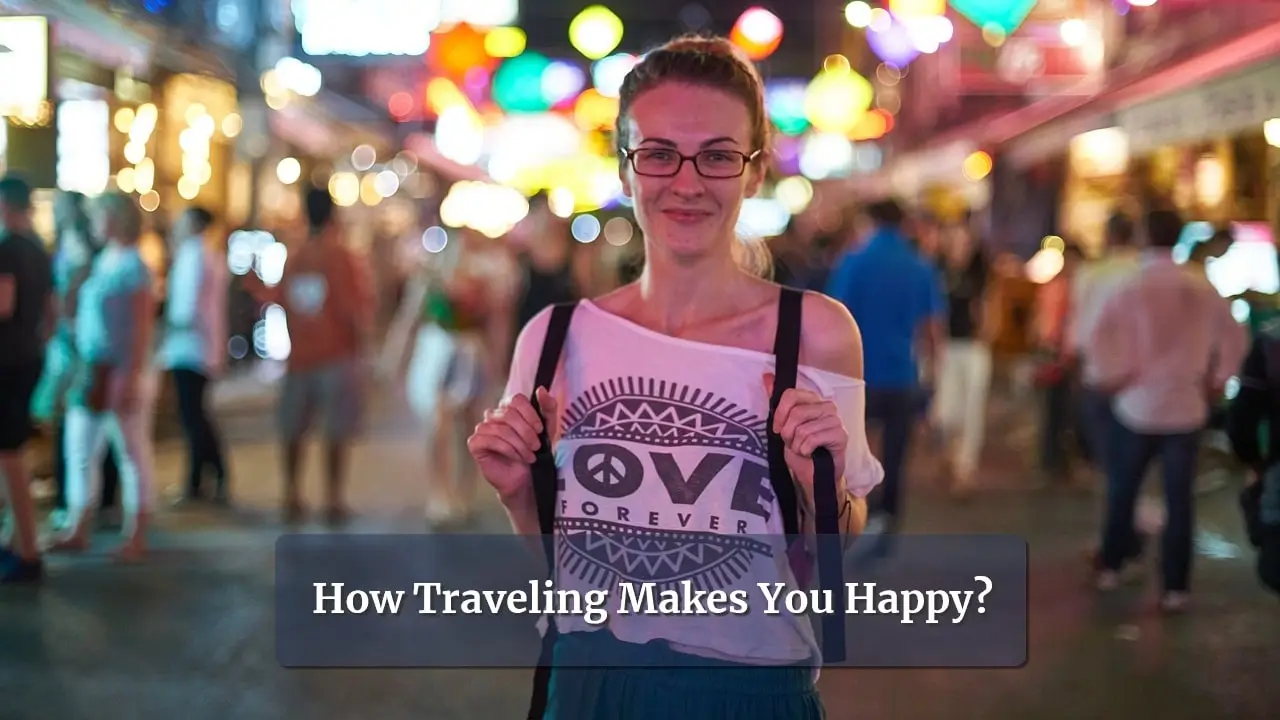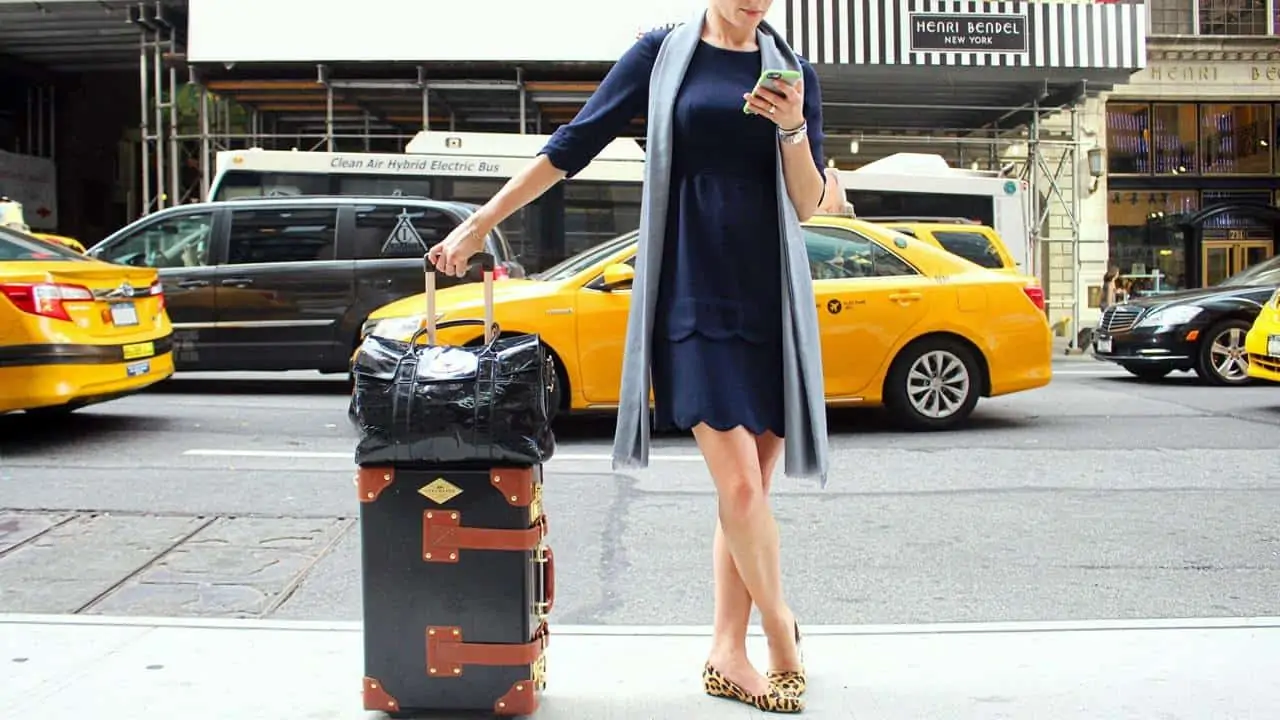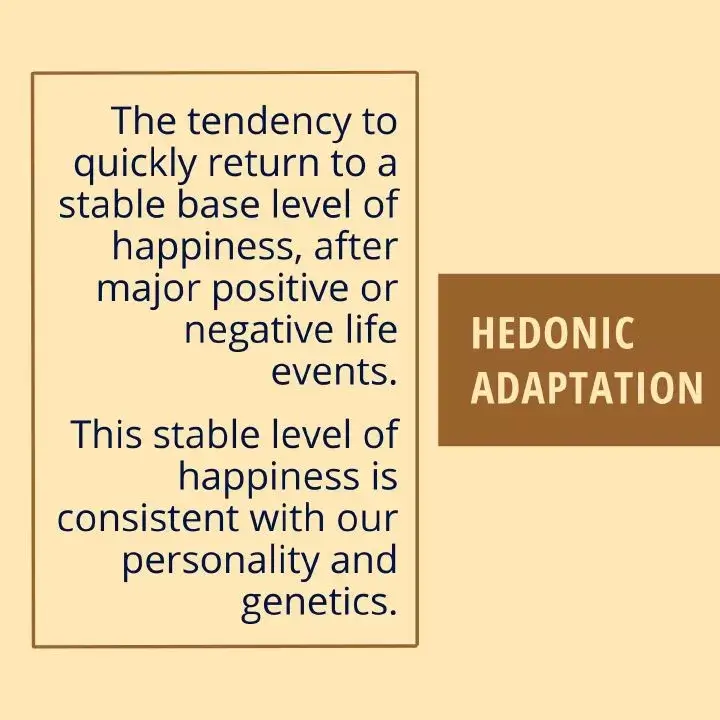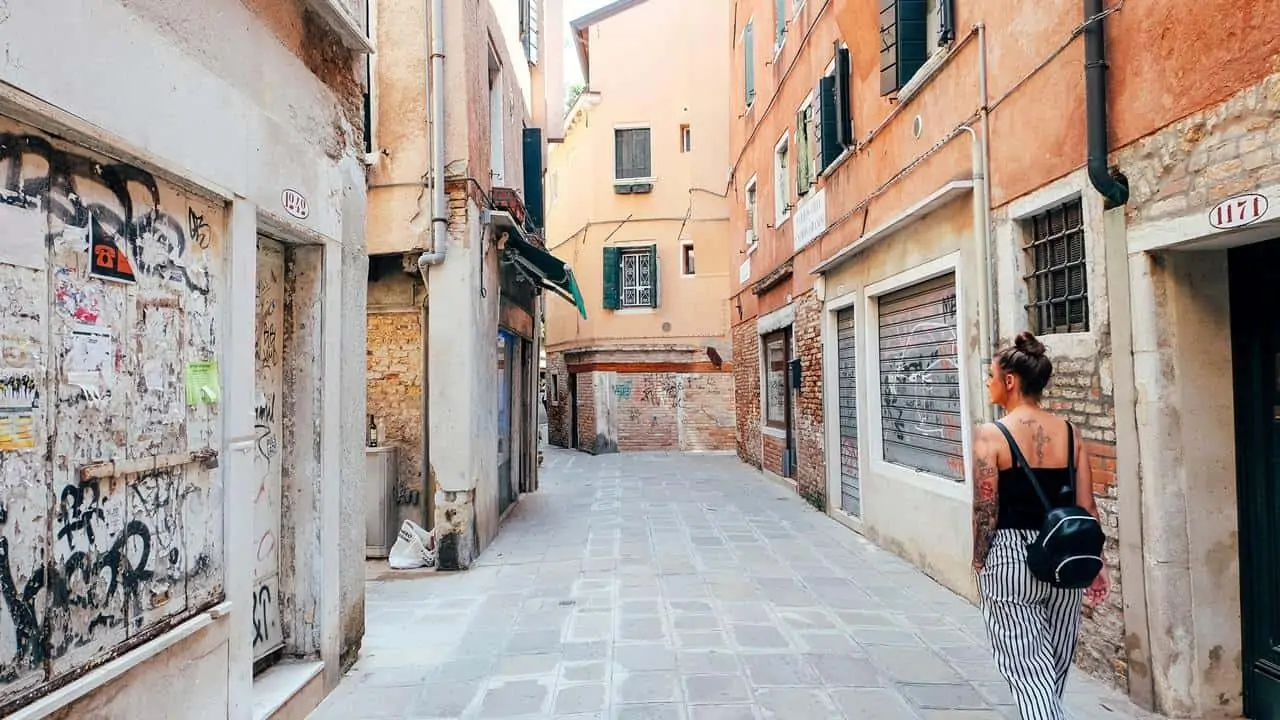Today's Monday • 10 mins read
— By Dr. Sandip Roy.
Our experiences become our memories. So, they are more truly a part of ourselves than any of our possessions.
But is it all a box of travel memories that makes us happy, or is there something that science can explain?
Why do vacations make you happier for years after you return? Let’s make the scientific case for why you need to travel more often.
- Traveling makes us happier by breaking our routines, satisfying our wanderlust, giving fresh perspectives, and creating fond memories.
- Trying new experiences while traveling can reduce stress, boost life satisfaction, and deepen our bonds with those we travel with.
- Positive psychology suggests that buying experiences, such as holiday trips, is a better use of money than purchasing things.
Read on to know the science-backed reasons why traveling boosts our happiness.

1. Traveling gives you joy before, during, and after the experience.
Positive Psychology studies show there are 3 ways why traveling makes you happy:
- Anticipatory Joy: Before travel, you get happiness boosts while planning your holidays.
- Joyful Experiences: During travel, you enjoy many moments of living through new experiences.
- Happy Memories: After you are back home, you share and relive your adventures and enterprises.
Exploring other parts of our planet and learning how people live there creates new nerve connections in our brains and makes for unique memories.
“Thinking of good times from the past makes me feel better about the present. It helps me appreciate things more. It gives me an idea of where I was then, where I am now, and where I ultimately want to be. It helps me understand the present and deal with it.”
— A respondent in the study Using the Past to Enhance the Present, Bryant & Smart (2005)
Then, according to happiness science, spending money on experiences rather than on material stuff is a better way to boost your happiness.
MIT neuroscientists have shown they can relieve depression by artificially reactivating joyful memories that were formed before the onset of depression.
Experiential purchases >> Materialistic purchases
Traveling to exciting places can boost our happiness more than buying stuff for the same amount.
Studies show that traveling to a foreign land and culture has a higher positive impact on our happiness than any monetary purchase. (Van Boven, 2005; Carter & Gilovic, 2010; Gilovic et al., 2014).
Traveling can make you happier than buying things for the same amount of money. Plus, the delight you get from buying things does not last long because it gets over-familiar (hedonic adaptation).
“What if I keep on buying more and more stuff?”
Then it could turn into an issue called compulsive shopping disorder. Psychologists link it to depression and anxiety.

2. Traveling triggers the release of Serotonin, the happiness chemical.
The one thing that makes us happy, as found by scientists, is the release of serotonin, the happy chemical, in our brains.
Dr. Gilovic, a Professor of Psychology at Cornell University, led several studies on this (Van Boven & Gilovic, 2003; Nicolao et al., 2009; Gilovic et al., 2014, Peng & Ye, 2015).
He noticed the following pattern: There was an increase in serotonin when people purchased things, ate savory junk foods, or even smoked cigarettes.
He said:
“When we give in to our temptations and silence our inhibitions without regard for the consequences, we feel a surge of happiness.”
We lose our inhibitions when we travel, and buy and do unusual things like eat exotic foods and play extreme sports, which can boost our serotonin levels.
However, since the serotonin surge is temporary, its aftereffect may be disappointing.
So, even if we have been eagerly awaiting an activity for a long time, our “happiness” gives way to some sadness after it’s over. This is the reason for the post-holiday blues.
The good news is that while this serotonin dip makes us unhappy, it also helps us focus on the activities of routine life.
But we may recreate the serotonin rush by telling others about our adventures, looking at our travel photos, and sharing our experiences on social media after we return home.
Beware, however, if you indulge in unhealthy activities to boost your happiness while on vacation, you may return with regrets.
Our serotonin levels also rise when we meditate, expose ourselves to bright light, and exercise. Traveling involves at least the last two of those (and the third one too if you are on a meditating holiday).

3. Traveling can help you get off the “hedonic treadmill.”
Look at the décor pieces in your room. You’ll notice you have gradually lost interest in them. Some items gave you joy for a longer time than others, sure. But none of them makes you as happy now as they did at first.
That is the Hedonic Treadmill.
Hedonic treadmill or hedonic adaptation is the human tendency to quickly return to a relatively stable level of happiness that is consistent with their personality and genetics after experiencing major positive or negative life events.

This makes us gradually lose the joy of material possessions. So, when you “meet” your stuff daily, they don’t bring you as much joy as before.
Traveling to new places breaks that pattern of hedonic adaptation.
New activities, places, and people during our travels give us a fresh boost of happiness.
Traveling also minimizes your tendency to compare. And experts tell us that the habit of comparing ourselves with others is a happiness killer.
How does it happen? Since it’s easier to compare materialistic stuff and harder to compare experiences, we find experiences on holidays keep us happy for a longer time.
Even if your friend says they went to the same holiday destination as you and did more fun activities, your experience will remain uniquely yours.
Your experiences while exploring new places are imprinted into your memory, so that even little cues like a smell or a photograph can resurface those emotions.
Traveling is important for mental growth and human happiness. — The NYU Dispatch

4. Unfamiliarity, novelty, and déjà vu of traveling make you happy.
Traveling allows us to test our survival instincts in new surroundings.
Our mundane lifestyle of repeating ourselves day after day, week after week, does not offer our brain the challenges it needs to stay sharp and optimized.
Stepping outside routine environs puts you in a vulnerable position. Your primal brain gets activated, which prepares you to adapt to new conditions and ensures your survival.
• Joy of Déjà vu
When you travel back to a holiday spot you visited a long time ago, you have a vague sense of “familiar” thrill due to a phenomenon called déjà vu.
It seems as if you’ve lived through the experience before, but in a dream or a previous life. This déjà vu is triggered by the reactivation of lost memory pathways in the brain.

5. Travel experiences become more valuable with time.
Recall a train trip you took years ago and notice how it grew more cherished with time.
As you get older, you get busier, less able, or more insecure to travel out of your hometown. This makes all your past good experiences even more fond.
This is similar to what happened to humans during evolution.
Our ancestors were explorers by necessity. They had to travel to survive, as edible/huntable things became scarce in an area. This helped them understand our place in this vast and mysterious universe.
Then, when humans started farming about 10,000 years ago and settled, the basic element of exploration went out of their nature.
The world is a book, and those who do not travel read only one page.
— St. Augustine
Our travel experiences become a part of us, staying for most of our lives and sometimes forever changing our way of living.
Ask an old person about their favorite holiday memory, and watch their eyes light up.
An inspiring real-life story:
Artists Marina Abramovic and Ulay had 12 years of collaboration. Their final performance was “The Lovers” in 1988 on the Great Wall of China, after which they parted ways.
They didn’t meet or talk to each other for the next 22 years. Then, in 2010, Ulay unexpectedly showed up at Abramovic’s live performance at the Museum of Modern Art in New York.
First, when the two former lovers meet after decades, they sit silently gazing at each other across a table. You have to watch what happens then.
Macushla left this memorable comment on the Marina and Ulay video:
“I know this look. It passes from the eyes, penetrates the heart, and coils two souls together until you don’t know where one ends or the other begins. You look so intensely into one another’s being (that) you fade into to each other. This is a love so true, so pure, so honest…there is nothing more magical than being in the presence of your soulmate. It is life changing. Nothing will ever compare.”
FAQs
Can traveling make you happy?
The research also found that people who believe tourism is important went on vacations more often. They were also more likely to check out travel-related information.
If one cannot actually travel, discussing past travels or planning future trips can boost happiness.
Are people who travel a lot happy?
How does traveling make you feel?
How to plan your perfect holiday trip?
Plan it a few months ahead. Pick a place. Buy the tickets and book the hotels. Allow yourself to be excited about it. Read and watch the travel guides to your destination. Pack the essentials. And make that trip, even if it is only to the next town over.
Final Words
Our curiosity for adventure is instinctive. We are wanderers and explorers by nature. But we seem to have put off exploring new places.
In such an anti-curious world, traveling can ignite the brain, and reveal its vast potential for making us happier.
• • •
Note: Yogi and Suchna, cross-content travelers, wrote an earlier, smaller version of this article. Extensively rewritten and edited by Sandip Roy.
√ Also Read: How To Say Goodbye In 40 Different Languages?
√ Please share this if you found it helpful.
» You deserve happiness! Choosing therapy could be your best decision.
...
• Disclosure: Buying via our links earns us a small commission.

